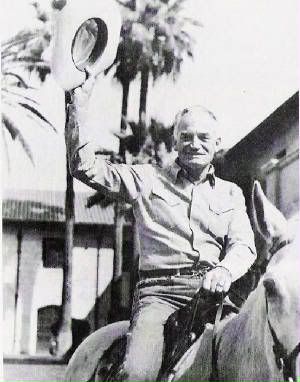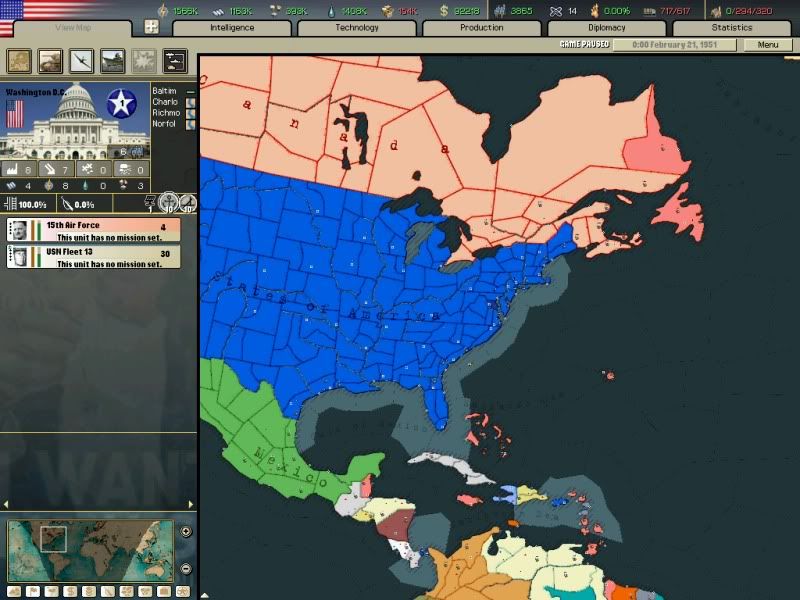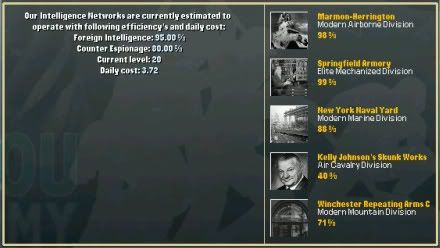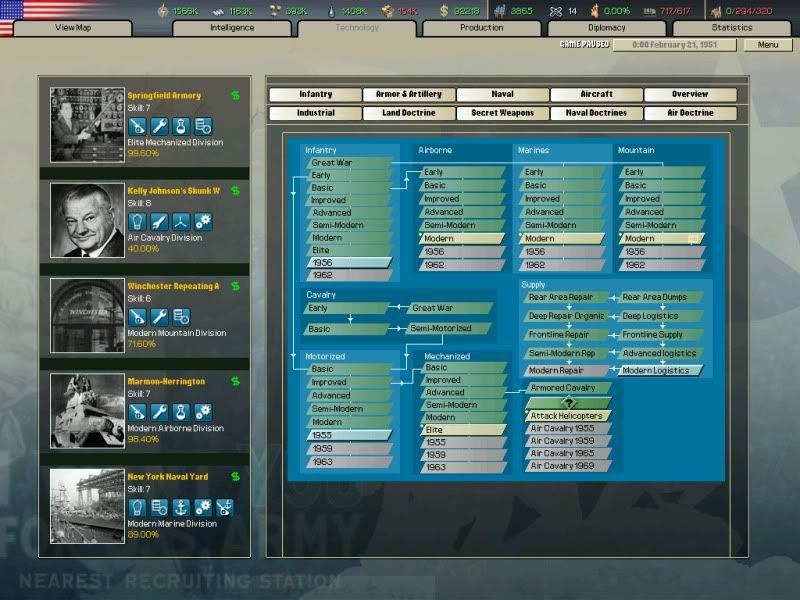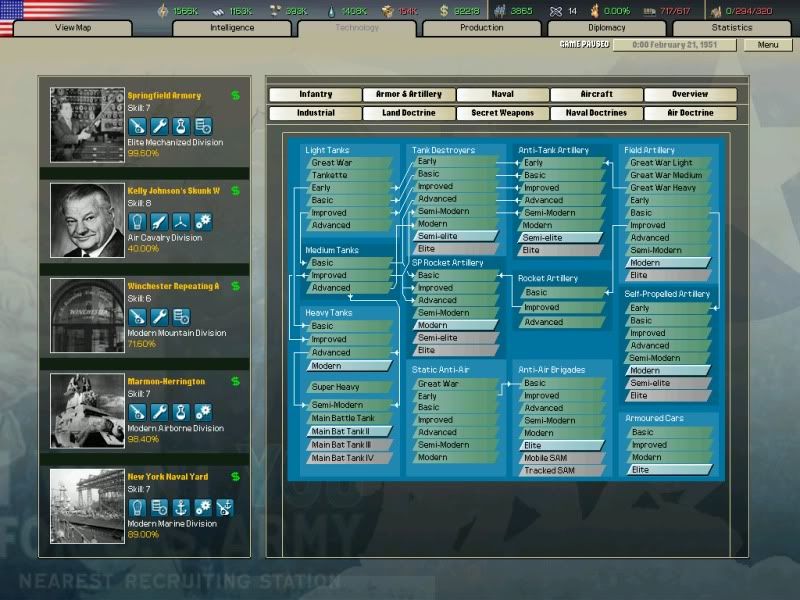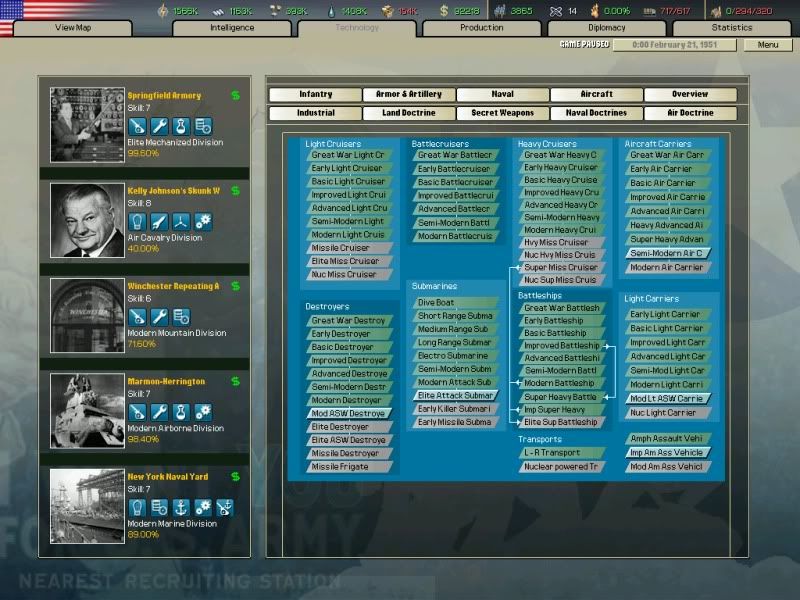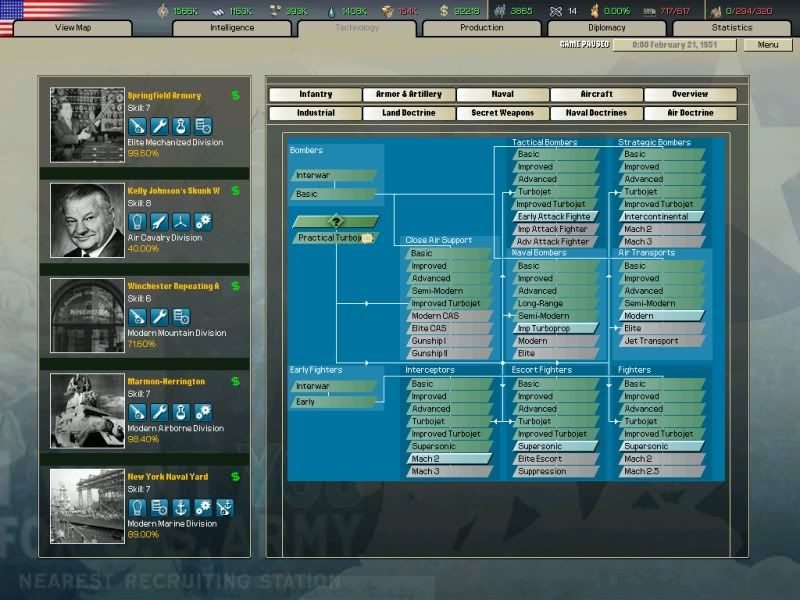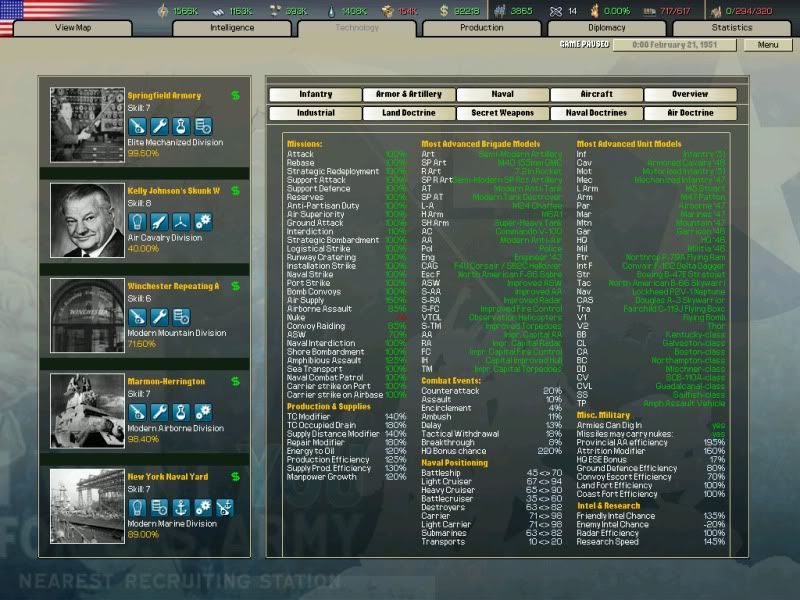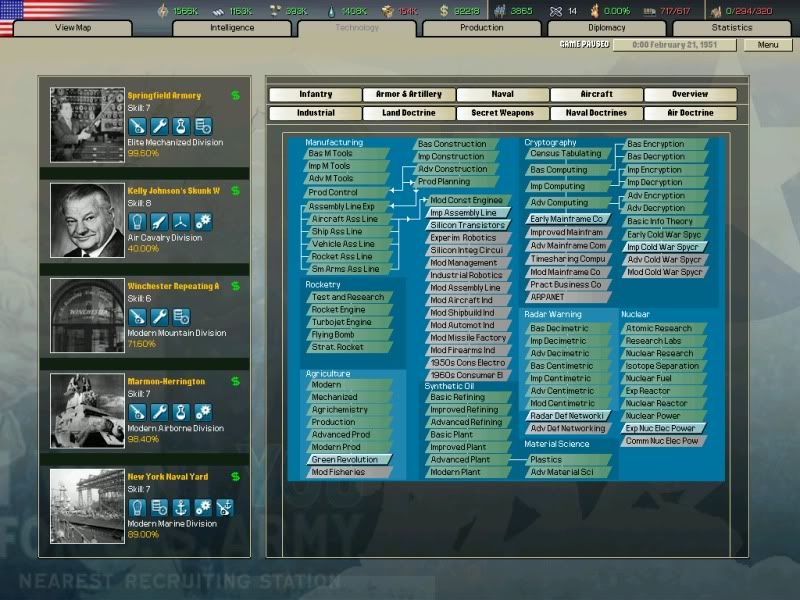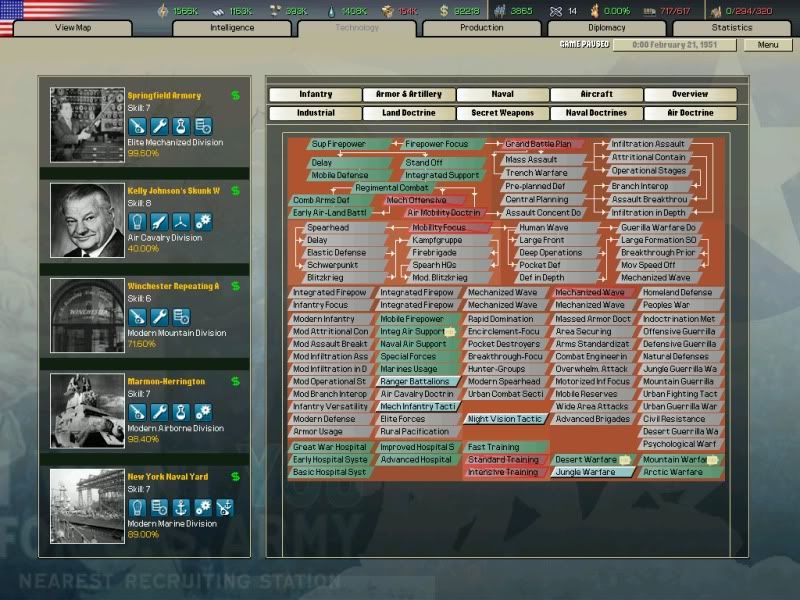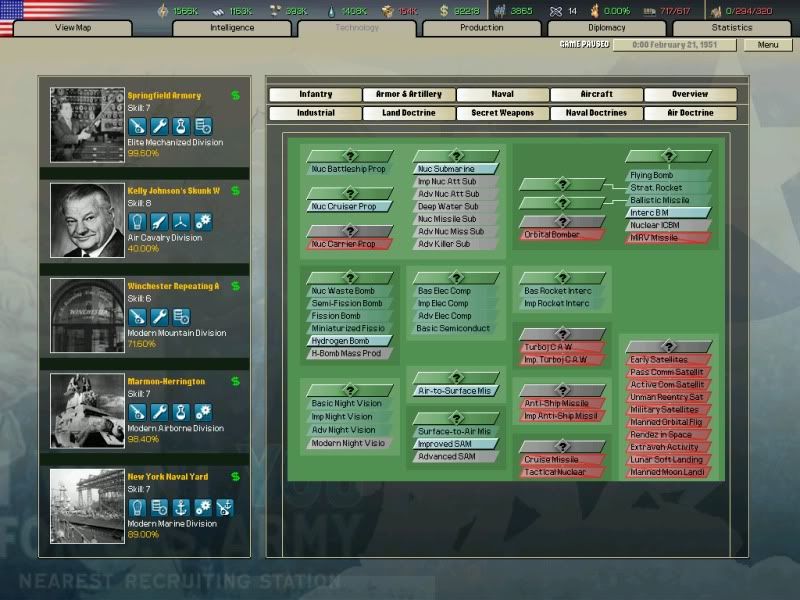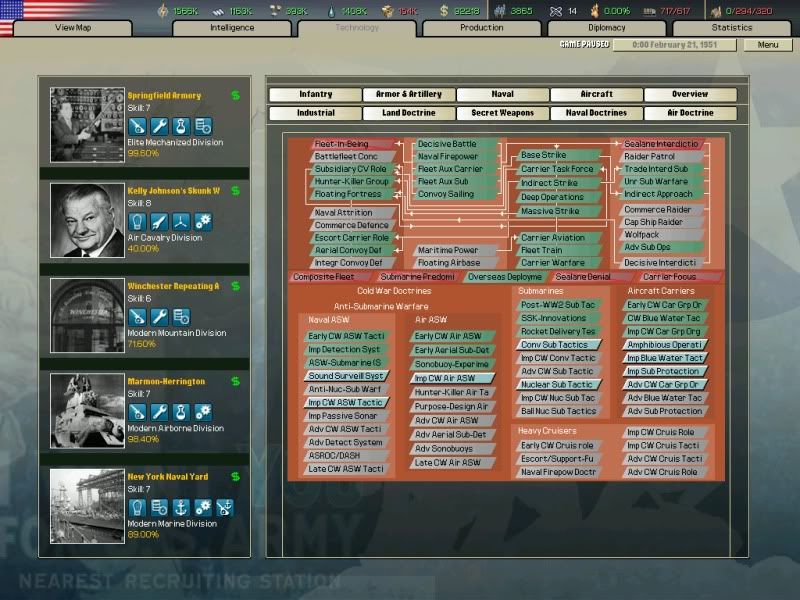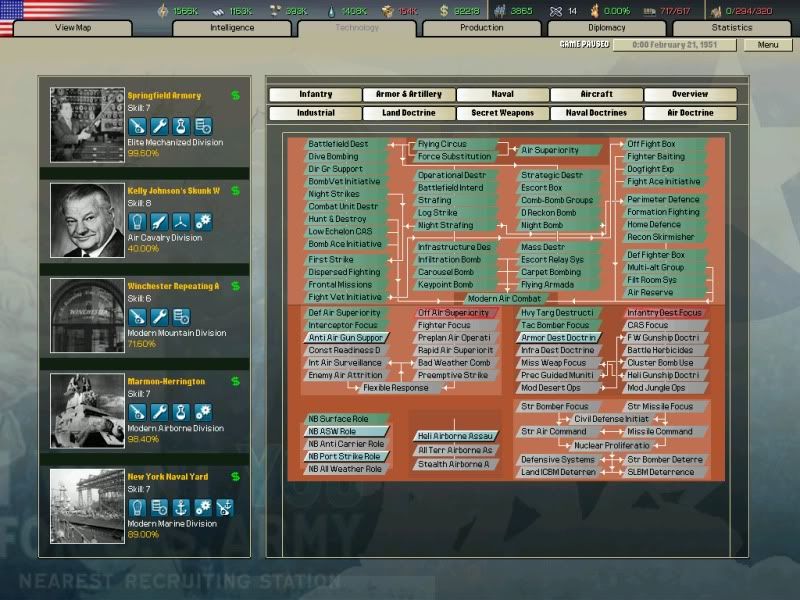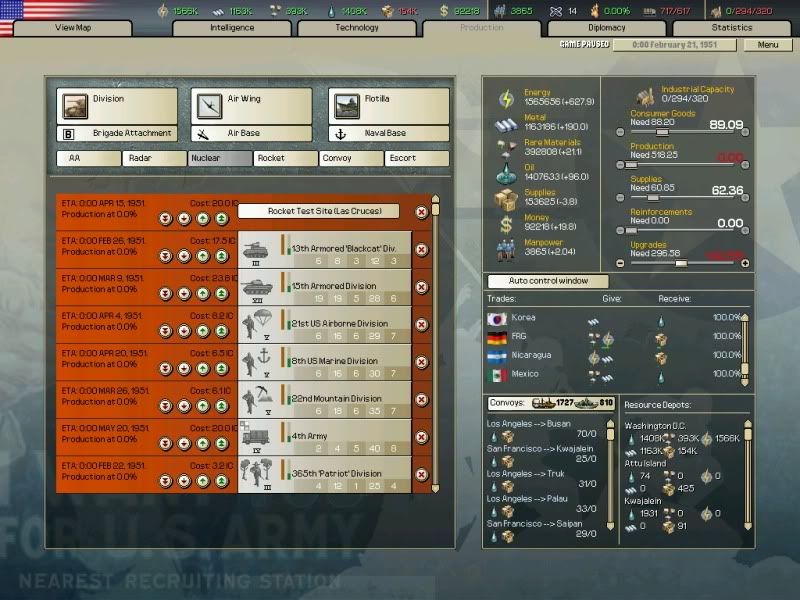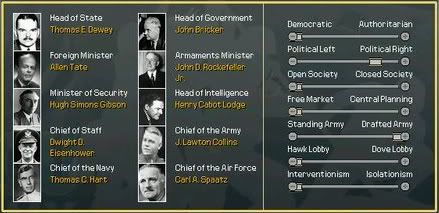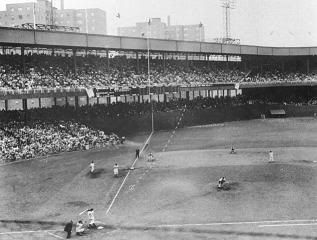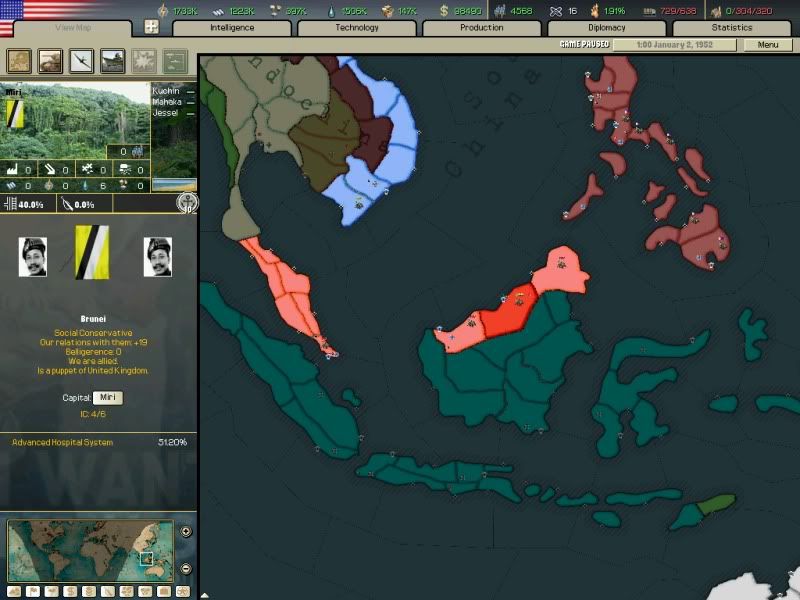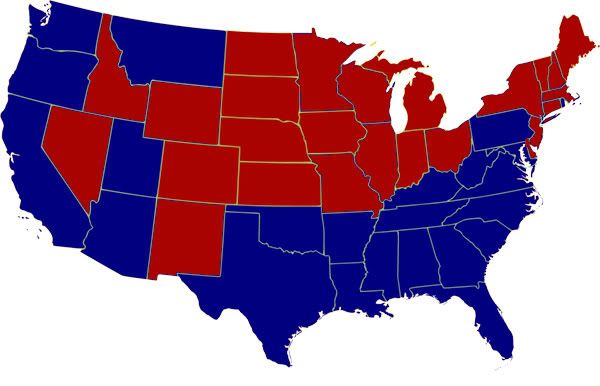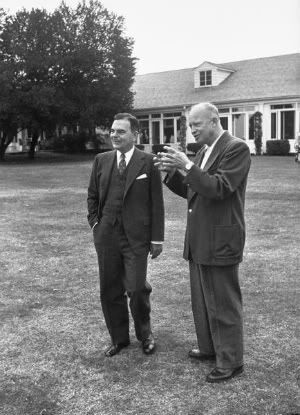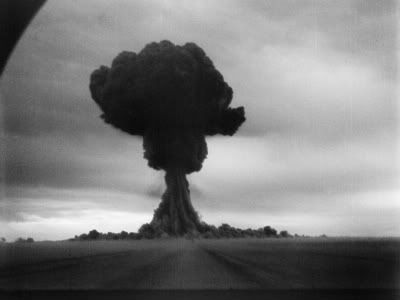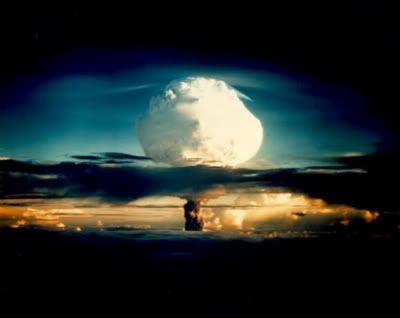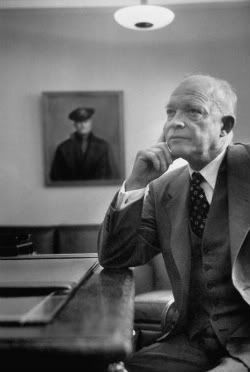Nuclear Regulatory Commmission; I actually meant the Atomic Energy Commission, the civilian authority that took over responsibility for nuclear production in the US after the Manhattan Engineering District was shut down. I realized that 24 hours or so after writing the post, and just didn't fix it.
BTW, if I was going to build a massive rocket test establishment based on OTL building, White Sands would have to be a smaller range, since it was tents and Meilerwagens; the first really big establishments were Redstone (Army) and Canaveral (Navy). Family connections, service preference, and the totally awesome US Army Missile Command wing of the museum at Huntsville ("Space: Where the Army has been all along!") all lead to a natural bias in favor of Redstone Arsenal in northern Alabama on my part, I admit.
Regarding MacArthur, if you have the time to spare for a rather substantial book, I recommend William Manchester's American Caesar. It's thirty years old, so you might be able to pick up a copy used pretty easily (think I found mine in a $.50 pile at Half-Price Books).
And you missed one Army five-star in your "old generals" list. What's up with Hap Arnold?
And from the four-star ranks...
Maxwell Taylor (OTL, either West Point or Berlin)? Matthew Ridgway (OTL, Korea on the death of Gen. Walker)?
Couple Marines who might be of use to you as well:
Victor Krulak - At this point OTL a full bird, record as the man behind the Higgins Boat, commander of one of the "para-marine" battalions, early helicopter thinker, gets his star OTL in 1956, second star before 1963 when he's sent to Vietnam to investigate the progress of the war, proponent of the "spreading inkblot" theory of fighting small actions around the clock to keep up pressure on the North Vietnamese.
Lewis B. "Chesty" Puller - At this point OTL a one-star. Five Navy Crosses and a Distinguished Service Cross. Living legend, picks up second and third stars OTL in Korea between 1951 and 1955.
Alexander Vandegrift - At this point OTL a four-star on the retired list, former commandant of the Marine Corps, made the "bended knee" speech to Congress arguing the case for a continued separate Marine Corps.
BTW, if I was going to build a massive rocket test establishment based on OTL building, White Sands would have to be a smaller range, since it was tents and Meilerwagens; the first really big establishments were Redstone (Army) and Canaveral (Navy). Family connections, service preference, and the totally awesome US Army Missile Command wing of the museum at Huntsville ("Space: Where the Army has been all along!") all lead to a natural bias in favor of Redstone Arsenal in northern Alabama on my part, I admit.
Regarding MacArthur, if you have the time to spare for a rather substantial book, I recommend William Manchester's American Caesar. It's thirty years old, so you might be able to pick up a copy used pretty easily (think I found mine in a $.50 pile at Half-Price Books).
And you missed one Army five-star in your "old generals" list. What's up with Hap Arnold?
And from the four-star ranks...
Maxwell Taylor (OTL, either West Point or Berlin)? Matthew Ridgway (OTL, Korea on the death of Gen. Walker)?
Couple Marines who might be of use to you as well:
Victor Krulak - At this point OTL a full bird, record as the man behind the Higgins Boat, commander of one of the "para-marine" battalions, early helicopter thinker, gets his star OTL in 1956, second star before 1963 when he's sent to Vietnam to investigate the progress of the war, proponent of the "spreading inkblot" theory of fighting small actions around the clock to keep up pressure on the North Vietnamese.
Lewis B. "Chesty" Puller - At this point OTL a one-star. Five Navy Crosses and a Distinguished Service Cross. Living legend, picks up second and third stars OTL in Korea between 1951 and 1955.
Alexander Vandegrift - At this point OTL a four-star on the retired list, former commandant of the Marine Corps, made the "bended knee" speech to Congress arguing the case for a continued separate Marine Corps.


